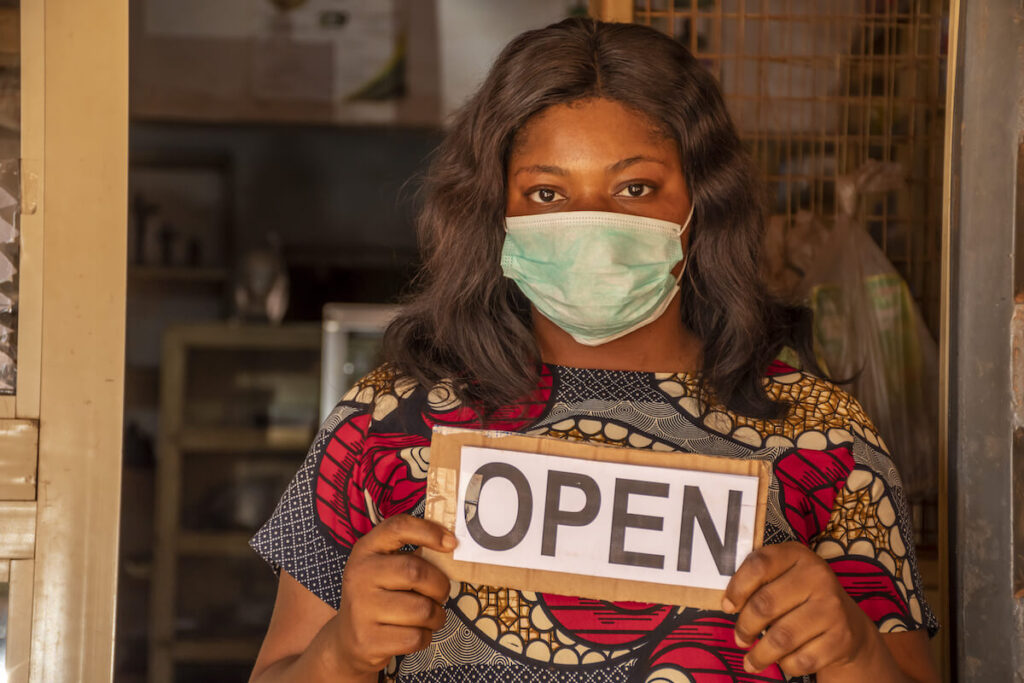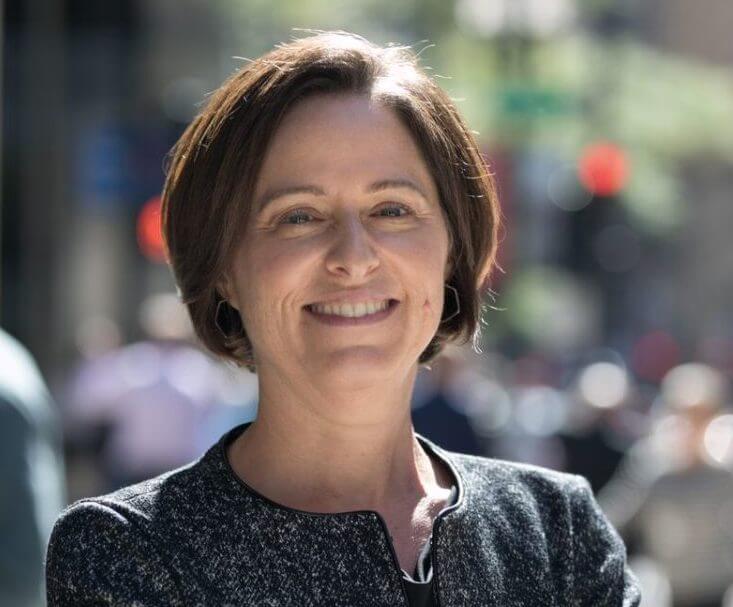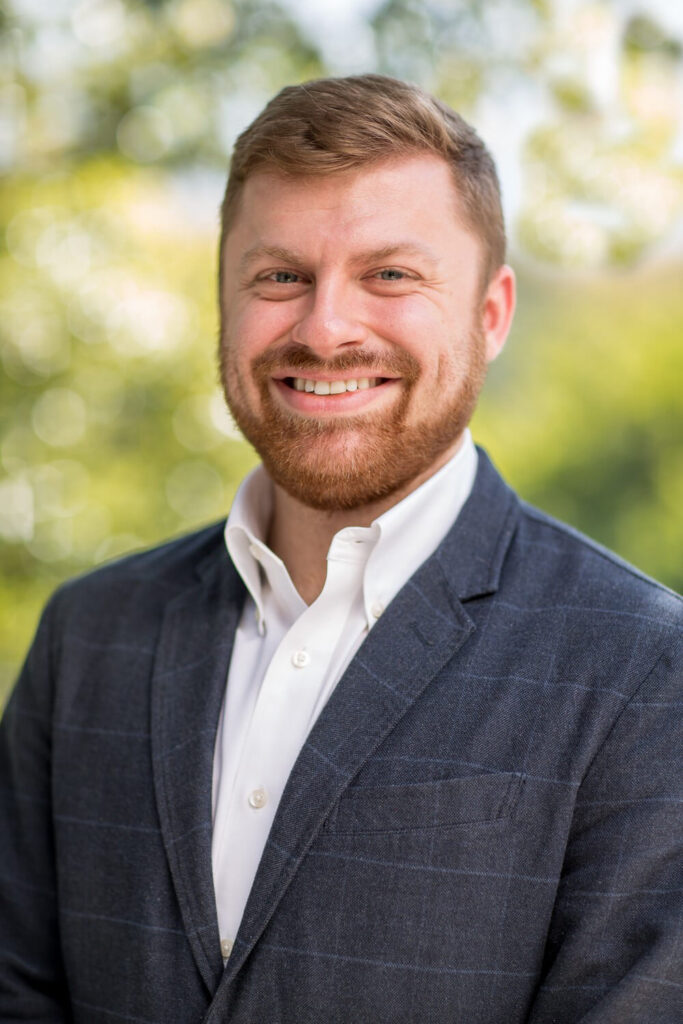
Topics
- Challenges and Crises
- Enabling Environment
- Financial Capability
- Financial Health
- Personal Financial Management
- Policy, Regulation and Government Initiatives
- Resilience
Series
Jennifer Tescher, CEO of the Financial Health Network and CFI advisory council member, is used to drawing the attention of regulators, policymakers, bankers, and financiers to financial health inequities in the U.S. With the pandemic raging, these inequities have only become more evident – and the need to draw attention to them even more urgent.
Tescher’s passion for financial health research and consumer advocacy has been at the forefront of her work since founding the Financial Health Network (formerly the Center for Financial Services Innovation) in 2004. Recently, Tescher has been hosting leaders on her EMERGE Everywhere podcast, writing articles, and speaking about building financial health ecosystems so everyone can benefit.
COVID-19’s Impact on Racial and Financial Inequities
As Tescher sees it, the typical data used to gauge the overall health of the economy bears little resemblance to the financial lives of most Americans. Compare the stock market’s recent rally to the rising unemployment claims and the disconnect becomes clear. Adding in COVID-19’s disproportionate impact on people of color, the ramifications of the current economic crisis — including the loss of wealth and unemployment — also become clear.
“What’s different this time around is that we’re having a conversation about systemic racism and the numerous structural challenges Americans face,” Tescher said in a recent interview with CFI.
Over two-thirds of Americans are still not considered financially healthy.
While the Financial Health Network’s U.S. Financial Health Pulse: 2020 Trends Report indicates that financial health has actually improved, Tescher highlights that over two-thirds of Americans are still not considered financially healthy, and much of the improvement can be attributed to the decade-long financial recovery finally trickling down to middle and lower-income Americans – a recovery that is now over. The report further highlights that financial health disparities have widened when considering race and income. “Taking into account COVID-19, Black Americans, people with low incomes, and women are bearing the brunt of the economic burden,” the report states.
“Breaking Silos” with the EMERGE Podcast and Platform
Highlighting COVID-19’s impact on racial and economic inequity is just one way Tescher champions the need for meaningful action to address financial health. Another way has been hosting the EMERGE: Financial Health Forum. Given the restrictions of COVID-19, EMERGE was reimagined this year. The Financial Health Network team created a new platform for the forum and has since leveraged that platform for a range of content such as blog posts, virtual events, and the podcast.
The idea behind the podcast, as listeners quickly learn, is the need to “break silos” to further financial health. And the diversity of professionals Tescher has on the show indicates that she means it: Dan Schulman of PayPal, Mayor Melvin Carter III, Jelena McWilliams of the FDIC, and Bill Bynum of HOPE are a few of her recent guests.
“The leaders that I’ve been privileged to interview during the first few months of Emerge Everywhere are flourishing during these challenging times precisely because of their ability to embrace complexity, demonstrate empathy, and act boldly. They see in 3-D,” Tescher points out.
Although the topics Tescher addresses in her podcast are focused on financial inclusion, she makes it a point to discuss topics relevant to leadership, industry partnerships, gender, and community engagement. For example, in the episode “Banking with Empathy” with McWilliams, the pair discuss disenfranchisement and inclusion in financial services as well as Jelena’s personal and financial challenges after immigrating to the U.S. with only $500.
It may seem like there isn’t much her guests have in common, but each episode includes key requirements to creating a holistic approach to financial health and (re)building the economy to work for everyone. For example, we learn in one episode that one of those requirements, feeling what it’s like to go without, is taken literally for employees at PayPal: Dan Schulman requires his staff to spend a day living without digital financial services.
Tescher on CFI’s Priorities in Inclusive Finance
With regard to CFI’s four strategic priorities – data risks and opportunities, mitigating and adapting to climate risks, consumer protection, and women’s financial inclusion — Tescher believes that although these areas could be tackled individually, the intersection and interconnection amongst these topics are what interest her.
“Thinking about CFI’s priorities together as one is where the geographic boundaries become less relevant, which creates an opportunity for the financial inclusion industry to collaborate.”
Climate change is still an evolving topic that Tescher and her team are thinking through. The U.S. is lagging behind the rest of the world in terms of both the ramifications — i.e. droughts and food shortages, and risk management — as they relate to climate change’s impact on financial services and consumer financial health. When it comes to climate change, it is important to recognize the connection between physical and financial health, Tescher notes.
On gender, Tescher points out that women historically have not had the same financial health outcomes as their male counterparts, yet women have shown they are better at repaying debt like mortgages or microloans. The challenge now is connecting women to tools that are aimed at helping them become entrepreneurs and financially healthy.
Financial Health Network’s data work continues to be one of its main policy priorities. Tescher sees the importance of data rights as a means to empower consumers to have control over, and access to, the information they need to make better decisions and leverage data for good.
“Consumer protection is certainly an aspect of financial data; however, the focus shouldn’t be solely on how data is used for bad, but also how to use data for good.”

Jennifer Tescher“What’s different this time around is that we’re having a conversation about systemic racism and the numerous structural challenges Americans face.”
FinHealthCheck
Tescher and her team often say that “what gets measured gets managed.” A critical piece of Financial Health Network’s theory of change is that there should be an easy way for companies to measure the financial health of their customers and employees; otherwise, it won’t be prioritized.
To make financial health a priority for the private sector, the Financial Health Network spent the last eight years developing a financial health framework and measurement methodology building on learnings from the FinHealth Score, Financial Health Pulse and eight indicators the Financial Health Network developed. They worked with dozens of firms to test their measurement framework and help them gain a deeper understanding of their customers and employees.
Turning all of that experience into an end-to-end system, Financial Health Network launched the FinHealthCheck platform in 2020 to make financial health management standard practice. FinHealthCheck will help organizations improve the financial health of their customers and employees, whether through a new strategy, a new product, or a revised policy or process. The platform allows partners to survey, aggregate data, and benchmark their outcomes. Tescher and her team are looking for visionary organizations that share their mission to join a growing roster of early customers.
Looking Ahead to 2021
With the incoming administration in the U.S., Tescher and the Financial Health Network believe there are significant opportunities for the public sector to address the systemic issues underpinning poor financial health. Part of their 2021 plan is to develop a financial health policy agenda, which includes how the public sector can leverage Financial Health Network’s data and expertise to support financial health-oriented policies.
One characteristic that remains constant in Techer’s writing, talks, and podcasts is that she is optimistic for the future. In Tescher’s last podcast episode of 2020, after acknowledging the tragedies we’ve all witnessed this year, she shares her three “pandemic silver linings”— the growing energy around stakeholder capitalism, racial equity, and empathy.
She believes there is no doubt we’ll look back at this time as one that has brought to light so many persistent issues such as racial justice, economic inequality, and public health.
The challenge, according to Tescher, is to ask ourselves “what silo-busting will we accomplish in the new year?”










